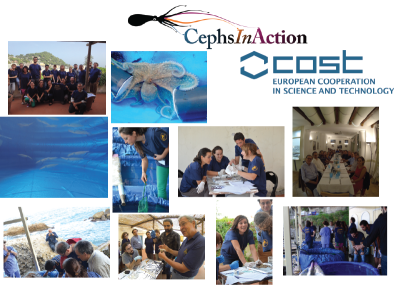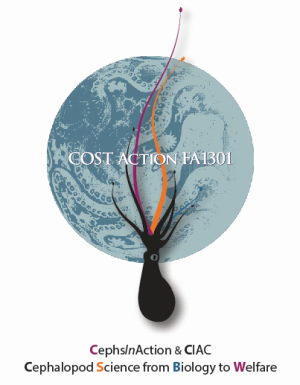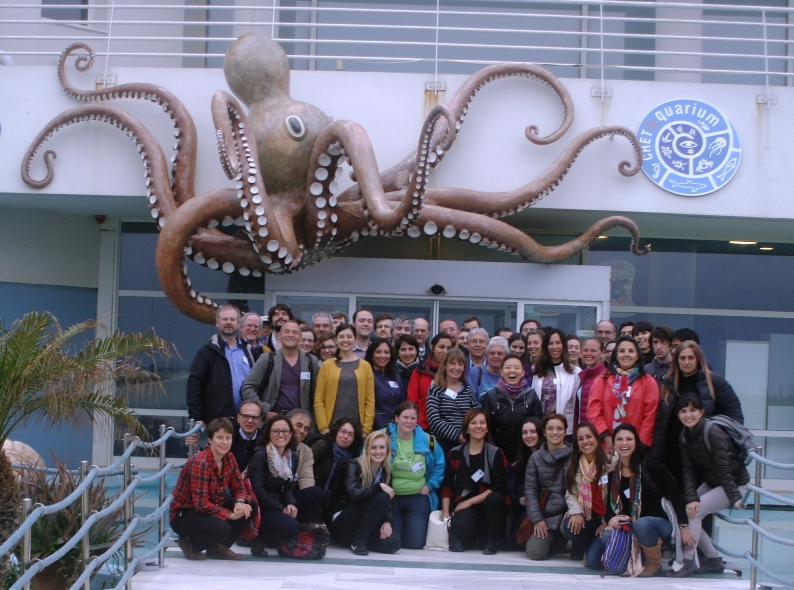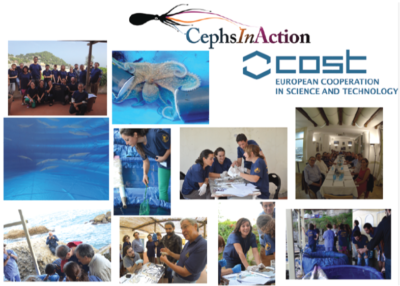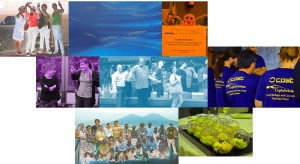COST Action FA1301
By facilitating networking between partners, encouraging researcher mobility, and fostering young generations CephsInAction aims to harmonize the research on cephalopod biology, to standardise approaches, and to stimulate and deliver innovation in research, aquaculture and fisheries. The COST Action does not fund research itself, but provides support for networking activities, such as meetings, short-term scientific missions, training schools, dissemination, public engagement, etc.
A network for improvement of cephalopod welfare and husbandry in research, aquaculture and fisheries
On 1 January 2013, research the use of any of the about 700 extant species of ‘‘live cephalopods’’ became regulated within the European Union by Directive 2010/63/EU. The Directive establishes measures for the “protection of animals used for scientific or educational purposes”.
Cephalopods are the sole invertebrate taxon to be included in this Directive. This marks a paradigm shift for invertebrates in EU, by covering the use of an entire class of Molluscs, namely ‘‘live cephalopods’’ (i.e. hatched juveniles and adults) in the legislation covering experimental procedures likely to cause pain, suffering, distress, or lasting harm. This means that, under the Directive and transposed national laws, cephalopods have the same legal status as vertebrates, in relation to their experimental use in research and testing.
CephsInAction promotes training, dissemination, sharing of tools and knowledge to improve best practice in care and management of cephalopods utilized for scientific and/or educational purposes. It is aimed to foster multi-disciplinary and inter-species scientific exchanges to integrate knowledge on welfare practices.
Our network works to collect, refine, distribute and improve knowledge and best-practice that is currently distributed in individual laboratories and available only within their boundaries. This will allow the development of new experimental practices, actions for reduction, refinement and reuse principles as required by the Directive. In addition, it will foster innovation and research practice that will implement adoption of welfare practice in aquaculture and fisheries, thus to improve the possible outcome of this important resource.
COST Action FA1301 is also aimed to support emerging scientific demands, and to promote cephalopod research, conservation and public awareness.
Find additional information about this COST Action on the COST website







